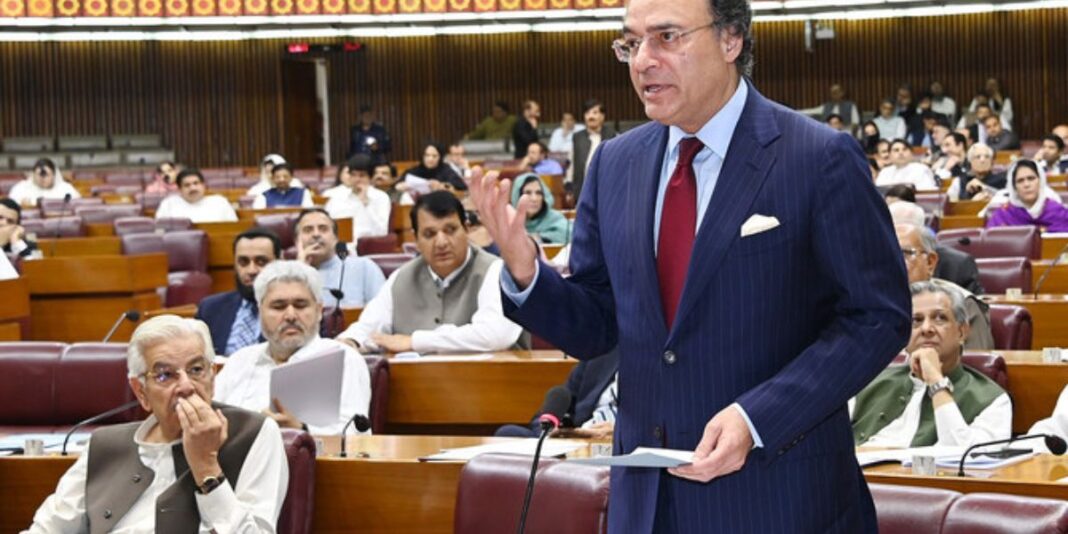- Pakistan’s parliament approves tax-heavy finance bill as part of efforts to secure an IMF loan.
- Finance Minister Muhammad Aurangzeb presents budget with ambitious tax revenue target of $46.66 billion.
- Annual inflation projected up to 13.5% amidst economic reforms and opposition criticism.
Islamabad: Pakistan’s parliament has successfully passed a tax-heavy finance bill aimed at bolstering economic stability ahead of crucial negotiations with the International Monetary Fund (IMF) for a loan ranging from $6 billion to $8 billion.
The finance bill, championed by Finance Minister Muhammad Aurangzeb, was debated and amended before receiving approval in a live telecast session chaired by Speaker Sardar Ayaz Sadiq. The bill’s passage marks a pivotal step as Pakistan strives to manage its fiscal deficit and navigate economic challenges exacerbated by inflation.
Presented earlier this month, the national budget outlines a formidable tax revenue target of 13 trillion rupees ($46.66 billion) for the upcoming fiscal year, representing a substantial 40% increase from the current year’s estimates. This ambitious target underscores Pakistan’s efforts to bolster its financial standing and strengthen its case for an IMF bailout.
A finance ministry report released on Friday highlighted the government’s strategy to mitigate inflationary pressures, projecting consumer price inflation between 12.5% to 13.5% by June 2024, up from 11.8% recorded in May. The report emphasized ongoing administrative, policy, and relief measures to stabilize prices amidst economic reforms.
The finance bill includes significant hikes in direct and indirect taxes, with a 48% increase in direct taxes and a 35% rise in indirect taxes compared to revised estimates from the previous year. Non-tax revenue, including petroleum levies, is anticipated to surge by 64%.
Specific sectors such as textiles, leather products, mobile phones, and real estate face heightened taxation, while workers brace for increased direct taxes on income, eliciting opposition from dissenting parties in parliament. Critics, including opposition lawmakers aligned with jailed former Prime Minister Imran Khan, have denounced the budget as potentially inflationary.
Despite challenges, Pakistan aims to reduce its fiscal deficit to 5.9% of GDP in the new financial year, down from a revised estimate of 7.4% in the current year. However, the central bank has cautioned about inflationary risks stemming from the budget, emphasizing the imperative of structural reforms to broaden the tax base and alleviate reliance on tax hikes for revenue generation.
Looking ahead, Pakistan has set a growth target of 3.6% for the upcoming year, alongside an inflation forecast of 12%, as it navigates a complex economic landscape amid efforts to secure international financial support and foster sustainable growth.





